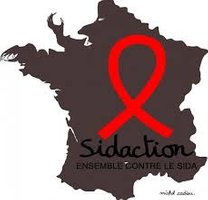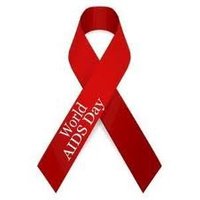NGYX I.C.
WEB Content
Cost HIV-1 Resistance Assays.
For information purposes read the following.
Currently (and despite what is in the Medscape publication here below) NGYX I.C. evaluates a correlated Genotype / Phenotype(s) entry for about 100 Euros (real cost effective but ONLY for optimized high throuput systems / labs). So about 10 Euro for the Genotyping and 90 Euros for the Phenotyping.
Primarilly it was not on the agenda of NGYX I.C. to "distribute" these "confidential" data. BUT as ALL of our data providers have decided to close their HIV1 Diagnostic activities by the end of 2013, NGYX I.C. decided to deliver the data to leave room to the scientific / health care community to explore these data and take over with HIV1 Diagnostic e.g. with Direct To Consumers methodologies / services.
This is NGYX I.C. choice and we are in line with WHO vision about sharing information (click HERE for direct access to publication):
Dr Najeeb Al Shorbaji, Director, Knowledge, Ethics and Research:
“Health is an information-driven and knowledge-based sector. Without evidence-based, timely, up- to-date, relevant, easy-to-use, and affordable information, the health-care provider will not be effective in delivering health care to those who need it.
Access to information is a basic human right; information empowers people to make better decisions about their own lives, families and communities. Information is power, but it can function in this way only if it is shared and used. The WHO Constitution states:
‘The extension to all people of the benefits of medical, psychological and related knowledge is essential to the fullest attainment of health. Informed opinion and active co-operation on the part of the public are of the utmost importance in the improvement of the health of the people’.
And as you will picture out from our price list, NGYX I.C. proposes GPs at a maximum of 1% of the cost effective value = 1 Euro / GP (we are a non-profit company, so just the minimal price to manage WEB sites and Data Preparation for sharing). And talking about cost/price here is the Medscape publication.
Source: Medscape (http://www.medscape.org/viewarticle/429693_3)
OVERVIEW OF HIV-1 RESISTANCE ASSAY METHODS.
Resistance assays use different technologies that provide complementary information about antiretroviral resistance. The 2 different types of drug resistance tests available are assays for genotype and phenotype.[1,2] Genotype assays provide information about viral mutations that may result in changes in viral susceptibility to particular drugs or classes of drugs. Phenotype assays directly quantitate the level of susceptibility of a patient's virus sample to specific drugs in vitro. The values measured from the patient sample are compared with values measured from a standard wild-type (WT) reference strain. The degree of phenotypic resistance is the difference in susceptibility to a particular drug between the patient sample and the reference strain. Both genotype and phenotype testing methods require the use of polymerase chain reaction (PCR) technology to amplify the HIV-1 genes of interest (PR and RT) from patients' plasma samples. However, there are numerousdifferences between these 2 resistance testing methods. One methodologic approach, the other, or both may be preferable in certain situations.[1,2]
Genotype
Genotypic resistance assays use state-of-the-art DNA sequencing methods to examine the RT and PR regions of the HIV-1 genome for all possible resistance-associated mutations. However, some genotypic methods (line-probe assay or chip-based) interrogate only a limited subset of the positions in which resistance mutations may occur; these limited tests may be less appropriate for clinical use as an adjunct to managing the use of various antiretroviral combinations.[1,2] They do have some advantages over sequencing assays that may lead to a useful clinical niche with further development, however: they are cheaper, faster, and better able to detect minority subpopulations (to 10% or less). These features may prove advantageous for use of a line probe assay in screening, for example, in certain clinical settings.
The major limitation of genotype assays lies in the clinical interpretation of the detected mutation patterns, given the complexity of available data and the ongoing acquisition of new data (discussed further below).
The results of a genotype assay are reported in the form of the resistance mutations identified, described above in the section "How Mutations Are Designated." Some test reports may also include an interpretation of the degree of resistance conferred by the particular mutation pattern to certain drugs based on published data or presented as in vitro and/or in vivo data.
Viral genome sequencing can be performed using kits such as the TRUGENE HIV-1 Genotyping Kit, by Visible Genetics, Inc. (VGI), or the ViroSeq HIV-1 Genotyping System, by Applied Biosystems, Inc. (ABI). Some testing laboratories have developed their own assays, which are referred to as "home-brew" assays. The TRUGENE HIV-1 Genotyping Kit became the first kit to be approved by the Food and Drug Administration (FDA), in September 2001.
The retail cost of a genotype assay is approximately $400-$500 per sample, and results are generated in 1-4 weeks, with most laboratories providing results in 2 weeks.[1-3] It is likely that most clinical laboratories offering viral load testing will eventually adopt FDA-approved resistance tests, which may eliminate or reduce the time required for shipping and processing of specimens. As a result, a significant improvement in reporting time and the possibility of local specimen testing, including local prioritization of certain specimens (eg, needle-stick source specimens), should make genotypic resistance testing more timely and affordable for patient management. The use of FDA-approved kits should also provide an advantage in improving standardization and consistency of mutation detection and interpretation.
Phenotype
Phenotypic assays use recombinant virus composed of a patient's virus PR and RT genes, which are inserted into a standard reference strain of virus. The recombinant virus is then tested in vitro for the amount of each particular drug needed to inhibit virus replication by 50% (50% inhibitory concentration, IC50), relative to the amount of drug needed to inhibit a reference strain of virus. Results are reported in the form of the fold change in drug susceptibility relative to a reference strain of HIV-1 (Figure 2).[1,2] An increase in IC50, increase in resistance, and decrease in susceptibility are each different ways of expressing the fact that more drug is needed to inhibit the patient's virus in vitro. relative to the reference virus. Two recombinant virus phenotypic assays are available from commercial laboratories in the United States: PhenoSense HIV from ViroLogic, Inc. (South San Francisco) and Antivirogram from Tibotec-Virco GroupNV (Belgium). A third assay is commercially available in Europe.
While genotypic assays search for mutations in the viral genome that may have an impact on viral susceptibility to certain drugs, phenotypic assays directly measure the impact of various drug concentrations on viral replication. Figure 2 shows the relationship between the percent inhibition of viral replication (Y-axis) of WT and mutant strains of HIV and increasing drug concentrations (X-axis). The shift to the right of the sigmoidal concentration curve of the mutant HIV strain illustrates that greater concentrations of drug are needed (IC50) in order to provide the same level of inhibition relative to the WT strain. The major limitation now is in clinical interpretation of an IC50: what fold change in resistance predicts escape from drug inhibition in vivo. This is still under study and varies by drug, with data now available for only a few drugs. The "clinical cut-off" for an IC50 is also probably best used if it can be related to interpatientdifferences in blood levels of the drug in question (discussed further below).
The cost of a phenotype assay is approximately $750-$900 per sample and the average turnaround time is 2-8 weeks.[1,2] The reporting time for a phenotype result is generally longer than that for a genotype result. Due to the complexity and biological hazard of the technology, as well as the level of infrastructure and operator expertise required, it is unlikely that clinical reference laboratories or local hospital laboratories will be able to adopt recombinant virus phenotypic assays.


